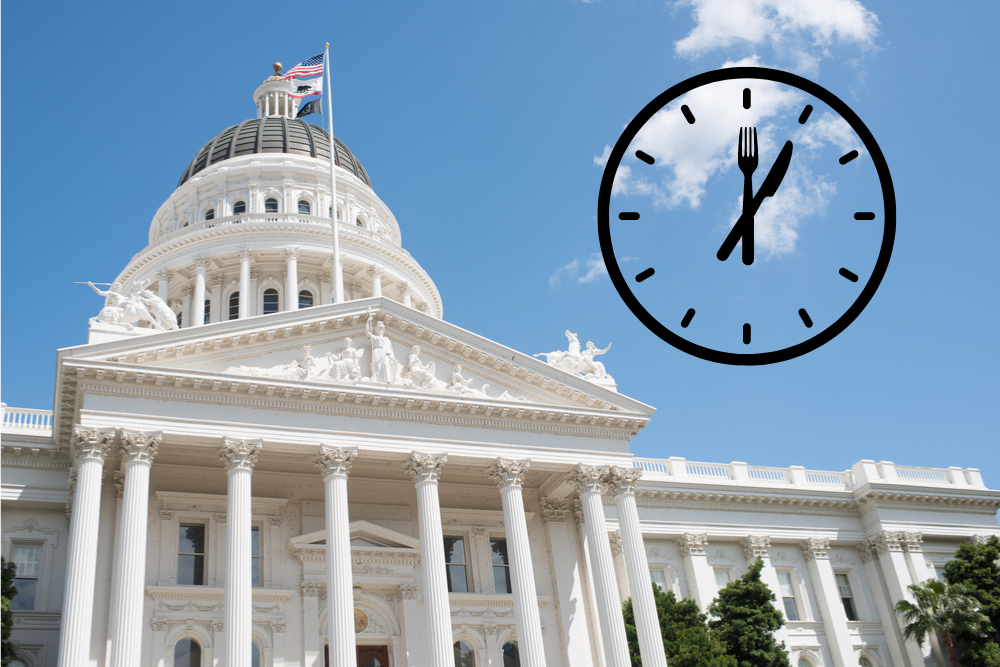 Editor’s note: This is a guest post by Darlene Garcia. Darlene is a seasoned dealership CFO/controller with specific expertise in California labor laws. Dealership compliance is a big industry due to the regulatory nature of automotive retail. Darlene takes the complexity out of what is sometimes very dry subject matter and morphs it into easy-to-understand tips for dealers. Enjoy!
Editor’s note: This is a guest post by Darlene Garcia. Darlene is a seasoned dealership CFO/controller with specific expertise in California labor laws. Dealership compliance is a big industry due to the regulatory nature of automotive retail. Darlene takes the complexity out of what is sometimes very dry subject matter and morphs it into easy-to-understand tips for dealers. Enjoy!
When Kathi approached me to write about California payroll compliance, I thought “I’m a terrible writer, BUT I have so much I can say about this subject”. So, of course I agreed.
California is a tough state for employers/dealerships.
Wage and hour laws are often as clear as mud. Failure to comply with California wage and hour laws can be quite costly to a dealer and from my experience in California, so many dealers do not provide proper training for their staff to keep the dealership out of serious financial distress. In addition to state penalties, potential PAGA claims, high EPLI rates, and hefty attorney fees. Additionally, it’s crucial to pay attention to the unnecessary expenses associated with payroll processing.
When I first sat down to write this, I thought I’d cover several payroll compliance topics. But as I began writing, I realized this should be addressed one topic at a time.
Controlling expenses is the #1 concern for dealers. Get your FREE DEALER SELF-ASSESSMENT to see how you measure up against manufacturer-specific benchmarks. Get it today!
Let’s start by discussing Meal Periods and Breaks in California.
Before moving to California, I vacationed here and when I visited restaurants, I took note that our waiters would disappear and we would suddenly have a different waiter (or no waiter at all). Often when the waiter returned, they’d say “sorry, I had to take my break” and I thought that was odd. As a dealership CFO/controller, I quickly learned the importance of meal periods and breaks as I prepared to relocate to California, and the laws around them that dealerships need to comply with.
“In California, an employer may not employ an employee for a work period of more than five hours per day without providing the employee with a meal period of not less than thirty minutes, except if the total work period per day of the employee is no more than six hours.” (https://www.dir.ca.gov/dlse/faq_mealperiods.htm)
If an employee is not allotted their meal time, “the employer must pay one additional hour of pay at the employee’s regular rate of pay for each workday that the meal period is not provided.”
Note: this is in addition to paying the employee for their time worked.
Questions for dealers to ask themselves regarding their organization’s meals and breaks policies:
- Are you paying your employees the required meal penalties?
- If you are, are you tracking what this is costing the business every month?
- If you’re not, are you aware of what the financial exposure is to the business for not doing so?
- Do your employees sign legally approved attestations, waiving the meal period when not paying meal penalties?
- Are your Payroll Admins, HR Admins, and Dept. Managers properly trained to assure you are in compliance?
Regardless of how you handle meal penalties, this can quickly add up to a huge financial expense to the store. It is important to put dollar figures in front of Owners, GM’s, and Department Managers so they can fully understand what meal penalties cost.
Communicating this information effectively and regularly helps reduce meal penalties as managers become more cognizant of situations that cause them. Monitoring ensures that employees are taking their lunches in accordance with California law.
While it’s highly unlikely to eliminate meal penalty expenses altogether, it’s certainly worth making every attempt to reduce violations and the subsequent expenses.
Why is it highly unlikely to eliminate meal penalty expenses?
Typically, it’s because managers have to send people to lunch before that fifth hour and if the employee is in the middle of doing something for a customer, they’re not going to stop servicing a customer in order to send them to lunch.
A similar situation happens in the accounting office when it’s month-end and we need people to work through lunch. The “remedy” is we just have them work through lunch or work a little later so that we can get month-end finalized.
Sadly, the real world stops for no one, especially in retail environments like car dealerships.
The costs of failure to pay meal penalties.
Failure to pay meal penalties comes with a much larger financial exposure for the dealer that can include late payment penalties and PAGA claims. Note: A PAGA claim refers to The Labor Code Private Attorneys General Act (PAGA) which authorizes aggrieved employees to file lawsuits to recover civil penalties on behalf of themselves, other employees, and the State of California for Labor Code violations.
California has a three-year statute of limitations for filing claims for failure to pay meal penalties which leaves dealers exposed for quite some time.
California requires employers to provide a minimum of 30 minutes unpaid, uninterrupted break prior to the 5th hour worked. An additional 30 minutes is awarded to the employee if more than 12 hours are worked in a day. Note that California law requires the meal period to be “uninterrupted.”
- How often have you seen a manager interrupt an employee in the lunchroom?
- How many times has a customer arrived and interrupted an employee’s lunch or break time? This happens more frequently than you’d think, and often when no one else is present.
To the manager, it seems innocent enough to say, “I know you’re on lunch break but can I ask a quick question?,” but when this is allowed even once, the dealership must pay a meal penalty to the employee. Now, imagine this scenario happening daily to several employees. The costs can grow and become unruly.
Waivers of meal breaks.
The first meal break can be waived “by mutual consent of both the employer and employee.” The second meal break can be waived “by mutual consent of the employer and employee only if the first meal period was not waived.” This requires excellent record-keeping so you’ll need a robust payroll system that can provide the attestations and maintain these waivers in the employee files electronically.
You’ll also need a skilled payroll person to manage it, along with all the other duties they have.
Areas in the dealership where meal break violations happen most often.
I’ve often found Porters/Lot Attendants to be the most likely to have meal penalties awarded to them. Managers often ask them to do task after task without realizing they have worked past their five hours and interrupt their meal breaks to attend to business related activities.
Additionally, I’ve found the accounting staff to be subjected to meal penalties. Accounting personnel are often expected to work through lunch at month-end and/or they are interrupted while they are on their meal break via the same scenario described above.
Employee break time management.
We can’t talk about meal periods without reminding everyone about breaks. Employees in California are allotted 10-minute breaks for every 4 hours worked.
Controllers, Human Resource Managers, and Payroll Admins can proactively assist in monitoring the expense incurred for meal penalties as well as train managers to comply with Meal Periods and Breaks regulation. Further training is advised, especially when it’s a larger organization with many franchises or facilities.
Most importantly, the dealership must assure that any staff member involved in Payroll receives on-going training to ensure against unnecessary expense down the road for non-compliance.
Meal and break laws and penalties compliance.
Car dealerships by nature are highly regulated and are a common target for audits by regulatory agencies. If you’ve ever been through a California EDD audit, you’ll likely never forget it. It’s painful but there are steps you can take to mitigate audits and shorten the stay of auditors in the store.
Use these tips to formulate or improve your own meal and break compliance process so you aren’t exposed. Due to the numerous penalties that may be sought for meal and rest break violations, what may seem like a small difference in expense can quickly become a costly mistake.

If you’ve gotten this far, you might like my Kruse Control Newsletter. Get my latest car biz CFO insights, tips, exclusive content, and a bit of fun straight to your inbox. Sign up now – it’s free!
